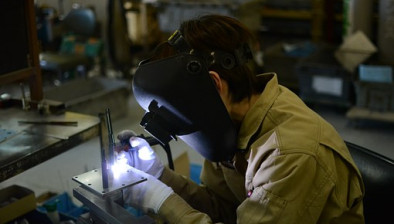UK businesses outperform international counterparts in July
UK businesses outperformed their international counterparts on a series of metrics tracking recovery from COVID-19 during July, according to Lloyds Bank.

The Lloyds Bank UK Recovery Tracker, working with IHS Markit, provides unique insight into the shape and pace of the UK’s recovery following the unprecedented disruption caused by COVID-19.
From a global perspective, PMI data shows a general shift upwards as lockdown measures were eased across most markets. The World PMI rose to 50.8 in July from 47.8 in June with increased output across manufacturing and service sectors,
The debut edition of the monthly Tracker showed that UK businesses’ output increased faster than the global benchmark in 12 of the 14 sectors monitored by the Tracker, indicating UK businesses recovered faster than similar firms in other parts of the world in July. A Tracker reading of above 50 signals output is rising, while a reading below 50 indicates output is falling.
The July PMI builds on gradual gains from an exceptionally low point for most countries, the majority now above the key 50 level, with the UK Composite Index reaching 57, comparing favourably with the Euro Area 54.9 and the USA at 50.3.
Although output is now rising in the UK, the outlook is still very uncertain with the risk of future widespread COVID-19 outbreaks, and the figures should be viewed in the context of the historic lows recorded during the second quarter of 2020. All 14 sectors underperformed the global benchmark in April.
UK Metals and Mining (75), Software Services (59), Beverages and Food (63) and Chemicals (66) were furthest ahead of global recovery trends in July. A restart of domestic manufacturing supply chains and a tentative rebound in corporate spending were the main factors driving this outperformance.
The two domestic sectors to fall behind the global recovery curve were Tourism and Recreation (45) and Technology Equipment (39).
Tourism and Recreation Businesses were challenged by a drop in international travel and restrictions on in-person interaction. Businesses in the sector were also some of the last to reopen following the easing of lockdown measures in the UK. Meanwhile, Technology Equipment manufacturing is struggling globally, in part reflecting trade tensions between the US and China.
The proportion of UK firms reporting lower output and attributing this to COVID-19 has fallen every month since the height of lockdown early in the second quarter.
80% of construction firms, 69% of services business and 67% of manufacturers cited lower output caused by the pandemic during April, but by July the number of survey respondents reporting a decline in output due to COVID-19 had fallen to 24%, 28% and 15% respectively.
In July, 12 of the 14 sectors monitored by the Tracker reported rising output compared to June. By comparison, at the height of lockdown in April, every UK industry reported that its output was falling. At that point, Healthcare fared best (39) while Tourism and Recreation output collapsed (2), reflecting the varied sector-by-sector impact of the pandemic.
The manufacturing industry underpinned the overall increase in UK output during July.
Of the manufacturing sub-sectors analysed by Lloyds Bank, those operating in metals and mining reported the greatest rise in output during the month – with a reading of 75 – due to increased demand for manufacturing materials and sales to reopened automotive plants.
The picture for the UK services industry was more nuanced. Financial Services (63) and Software Services (59) output rose during July, with the latter benefiting from increased demand for digital services during the pandemic. However, the output of sectors that rely more heavily on in-person interaction, such as Tourism and Recreation (45), continued to fall, albeit with the rate of decline slowing for the third successive month.
The proportion of firms that mentioned ‘redundancies’ when reporting on their staffing trends is now level with those that mention ‘furloughing’ staff. In July, 23% mentioned them in each case.
Notably, the proportion of survey respondents that mention ‘recalling or rehiring staff’ has increased every month since April, with 14% mentioning this in July, up from 1% in April.
Jeavon Lolay, head of economics and market insight, Lloyds Bank Commercial Banking, said: “COVID-19 has brought about a period of concentrated disruption unlike anything we’ve seen before. Now, as lockdown measures around the world begin to ease, we can better explore the potential shape and pace of the UK’s recovery from the historic lows recorded last quarter.
“The Lloyds Bank UK Recovery Tracker provides a monthly analysis of how UK firms are faring in a global context – and takes a deep dive into the key factors underpinning momentum behind the economic recovery.
“Our debut edition paints an encouraging early picture for a number of domestic industries, although the major caveat is that output is rising from an extremely low base, and the risk of further local lockdowns is very real. Future editions will give a clearer direction of travel for the UK economy, as COVID-19 restrictions evolve and demand profiles change.”








